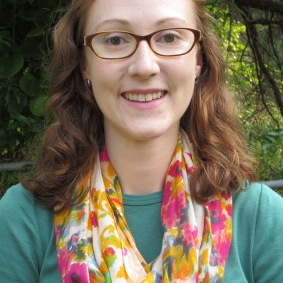Knauss legislative fellowships in Congress help build careers — and they're fun and educational. See our video and fact sheet for details.
Alexandra Atkinson

Fellowship Institution:
NOAA, Restoration Center, Office of Habitat ConservationStart Year:
2016Alexandra Atkinson will be working with NOAA’s Habitat Conservation Department as a Habitat Focus Area Program Specialist. She will help NOAA coordinate and implement their Habitat Focus Area project, in which 10 sites across the country will be restored to create healthy, sustainable habitats for fish and wildlife.
Her past research has involved studying a variety of marine species, including mysids (small shrimps), Atlantic menhaden, and gray whales. Atkinson also worked to restore local wetlands in Illinois, her home state.
Atkinson completed a B.S. in ecology and evolutionary biology at the University of Rochester and an M.S. in fisheries science at the University of Maryland Center for Environmental Science (UMCES) Chesapeake Biological Laboratory. While working on her master’s, she was president of the American Fisheries Society’s Tidewater Chapter student subunit. Atkinson hopes that working with NOAA will allow her to gain an appreciation for the inner workings of NOAA.
Blog Posts
See Alex's posts to Fellowship Experiences, Maryland Sea Grant's blog written by and about graduate fellows and their research:
Call for Symposium Presenters and Authors
The Chesapeake Rising: Innovative Law and Policy Solutions for Climate Adaptation in Coastal Communities symposium will explore key legal and policy considerations that affect climate adaptation strategies. It provides a unique opportunity for upper-level law students and early-career lawyers to present and publish their legal scholarship.
Program Announcements
-
-
Maryland Sea Grant has program development funds for start-up efforts, graduate student research, or strategic support for emerging areas of research. Apply here.
News and Blogs
Video Gallery
Sea Grant Film Explores a Diminishing Smithville
Smithville is a community on Maryland’s Eastern Shore, on the edge of the Blackwater National Wildlife Refuge. A century ago, Smithville had more than 100 residents. Today, it has four, in two homes: an elderly couple, and one elderly woman and her son, who cares for her.
Featured Fellow
Featured Research Project
Developing a habitat model for mysids, an important link in Chesapeake Bay food webs
Mysids are important mesozooplankton prey for many species of fish in Chesapeake Bay and are an important link in transferring energy from lower to upper trophic levels. Mysids also serve as biological vectors for benthic-pelagic coupling due to their diel vertical migration and omnivorous prey-switching behavior, which makes mysids important regulators of food web architecture. Despite their central role in coastal food webs, surprisingly little is known about mysid ecology and dynamics in Chesapeake Bay.
The Blue Crab: Callinectes Sapidus
An essential resource for researchers, students, and managers. Get your copy today!


©2023 Maryland Sea Grant. All rights reserved.
5825 University Research Court, Suite 1350 | College Park, MD 20740
Phone: (301) 405-7500 | Fax: (301) 314-5780 | Contact Us



